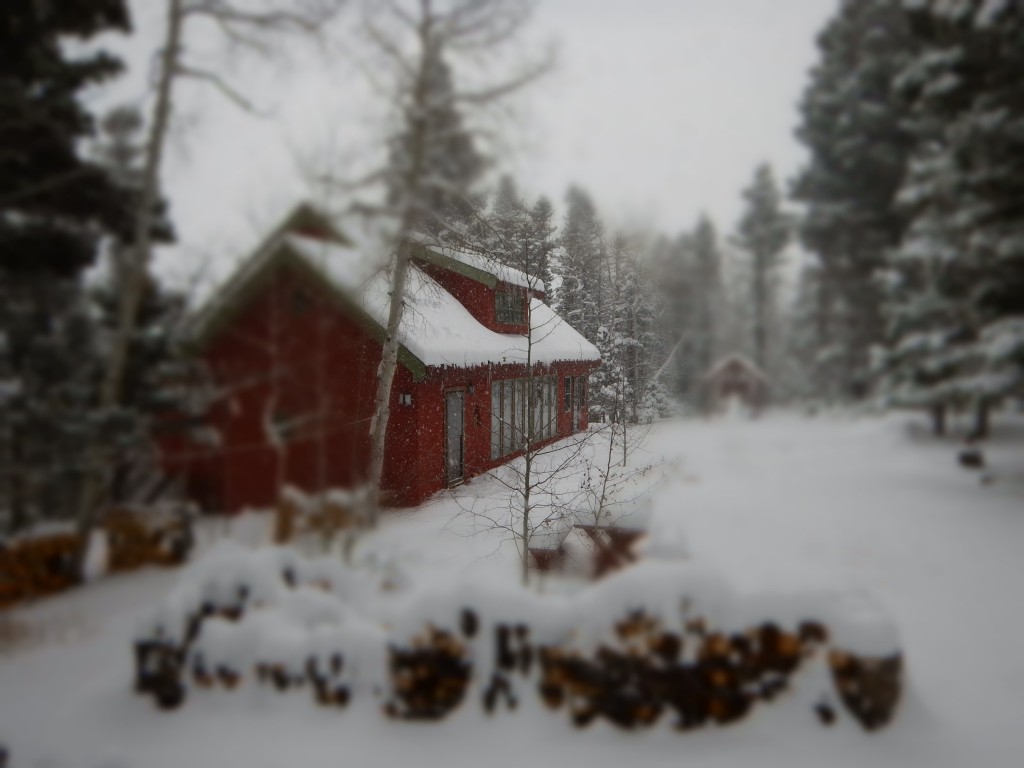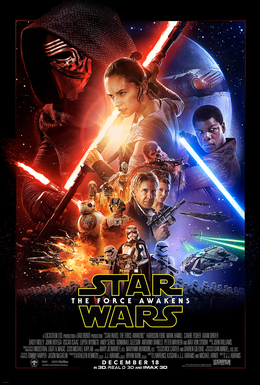So over the holidays I was holed up on a mountainside in Colorado reading Leo Tolstoy’s epic War and Peace (1869), which, at 1224 pages, is an undertaking. I felt compelled to read it as quickly as possible, lest the undertaking be superseded by the undertaker. My hardcover Knopf edition weighed in at five pounds, and although it is not the same as the James Michener novel Chesapeake—about which one wag (Jack Beatty) said, “My best advice is don’t read it; my second best is don’t drop it on your foot”—I still wouldn’t want it to plummet upon my toes. It took me about a month, and was the second time I read it. Imagine a human holed up in a room in this house below, hearing all those versions of Jingle Bells and “I Wanna Hippopotamus for Christmas” while reading Tolstoy. In a hurry, lest the reindeer be disappointed at my literary failure.

I coincidentally finished it just in time for the TV debut of the miniseries on A&E Network, a BBC production it seems, that started last Monday. That I actually even bothered to reread it was a bit of happenstance: I was telling a friend of mine he should read it, which prompted me to reflect, If he should read it, why not me? So I did. And am happy to report I loved it, was enthralled, and feel that somehow, someway, my life was a greater thing for having spent the time doing it. (As opposed to giving in to the Star Wars hoopla and wasting over two hours of my life in that cinema, crunching popcorn and giggling at all the bad lines, annoying the woman sitting beside me in the crowded theater.)
In the spirit of that old saw, “The book’s much better than the movie,” I can’t say much positive about the miniseries, though I am going to try to follow it. (The first two-hour installment was Monday, and I’m assuming the other episodes will follow on succeeding Mondays.) For Tolstoyphiles, there’s much to carp about: Paul Dano is too meek and mousy as Pierre, the sex-it-up scenes with Anatole and Helene have the effect of casting them as pervy villains (whereas Tolstoy does a great job of portraying their sometimes-awful behavior as really rather ordinary), but most damningly, those awful commercials every two minutes. I try to avoid network TV because of commercials, and this was one of the few times recently where I was subjected to such blather. It’s one thing to be contemplating the horror of warfare and the foolishness of Czar Alexander I at Austerlitz, but to have the battle scenes interrupted by ads for Duck Dynasty is a bit too absurd.
The novel itself, on the other hand, is another thing altogether: the dynasties it describes don’t belong to hillbilly duck hunters. The main characters are members of a few aristocratic families, and one thing that struck me is that no one really seems to work—at least not the main characters. Like, who washes the dishes or sweeps the floors? Not Nikolai or Prince Andrei, that’s for sure: The servants accomplish all the work for them. They do go off to work and fight battles, and suffer greatly in those wars, but they don’t really work, not in the sense that pervades American life and culture. At times I think we (and I) work too much, actually, and to read about people who don’t really seem to work at all is fascinating, a glimpse at a different world. But the great difference between reading War and Peace and watching the miniseries is that in reading you are really encountering and entangling yourself with Tolstoy’s mind (and perhaps the mind of every writer you read, but for some, it’s a keener experience than with others), while the movie just seems some pretty costumes, pretty people, and pretty landscapes—even the battle scenes are in some ways pretty. And while I suppose pretty is fine, it’s also superficial and fairly meaningless, compared to the novel. Tolstoy has a great touch for the sublime and the banal at once, the great idea and the human touch. Much of the book wrestles with the tragedy of Napoleon’s march into Russia in 1812 (Tolstoy uses the term “the year twelve” often), the Battle of Borodino and the burning of Moscow, and the haunting deaths of many hundreds of thousands of soldiers—virtually all of Napoleon’s Grande Armee of 800,000 soldiers was destroyed. Much of it resonates for our moment in history as well: Why did so many soldiers follow Napoleon to their death? Why are so many people enthralled with Donald Trump? He goes on to the questions of free will and power and the will of one person over another, and it’s a fascinating world view. I won’t go on at length about the merits of the book, but I do repeat my advice of recommending it to all who enjoy great literature, with an addendum not usually noted: It’s a fun read. And here’s a photo of the great man himself:

But speaking of meaningless and “pretty,” the same weekend I finished War and Peace I took my daughter to see the new Star Wars. Dumb lines, dumb scenes, coated with a thick layer of ridiculousness and special effects. Welcome to the 21st century!

- March 2026
- February 2026
- January 2026
- November 2025
- October 2023
- September 2023
- September 2021
- April 2020
- September 2019
- May 2019
- August 2018
- February 2018
- January 2018
- October 2017
- August 2017
- June 2017
- May 2017
- March 2017
- February 2017
- November 2016
- October 2016
- May 2016
- April 2016
- March 2016
- February 2016
- January 2016
- November 2015
- October 2015
- September 2015
- June 2015
- May 2015
- April 2015
- March 2015
- December 2014
- September 2014
- August 2014
- May 2014
- March 2014
- February 2014
- January 2014
- December 2013
- November 2013
- October 2013
- September 2013
- August 2013
- July 2013
- June 2013
- May 2013
- April 2013
- March 2013
- February 2013
- January 2013
- December 2012
- November 2012
- October 2012
- September 2012
- August 2012
- July 2012
- June 2012
- May 2012
- April 2012
- March 2012
- February 2012
- January 2012
- December 2011
- November 2011
- October 2011
- September 2011
- August 2011
- July 2011
- June 2011
- May 2011
- April 2011
- March 2011
- February 2011
- January 2011
- December 2010
- November 2010
- October 2010
- September 2010
- August 2010
- July 2010
- June 2010
- May 2010
- April 2010
- March 2010
- February 2010
- January 2010
- December 2009
- November 2009
- October 2009
- September 2009
- August 2009
- July 2009
- June 2009
- May 2009
- April 2009
- March 2009
Recent Posts
- On Tom Waits in “Father Mother Sister Brother”: Grifter Like Me
- On “After the Hunt” and “The Tavern at the End of the World”: Land of the Lost Professors
- On Morris Collins’s Novel “The Tavern at the End of History” (2026) and the Coen Brothers’ Film “A Serious Man” (2009)
- “Song Sung Blue” Makes Kate Hudson Oscar Worthy
- On Randall K. Wilson’s “A Place Called Yellowstone”: Award-Winning History of Yellowstone National Park
Recent Comments
No comments to show.
